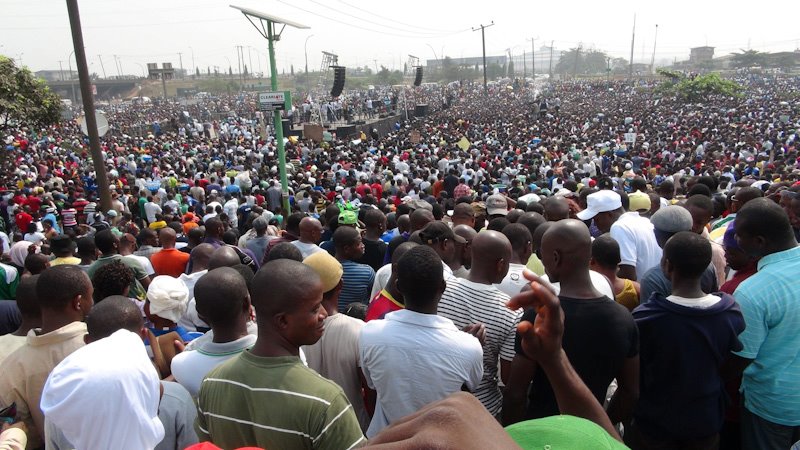Ghawar is the largest oil field in the world. It has produced over 60 billion barrels of oil so far. This field alone accounts for about 50 per cent of Saudi Arabia’s daily output of around 11 million barrels per day. If the oil at Ghawar runs out for a week, the world would be in a state of chaos reminiscent of an apocalypse. Note that the Ghawar field produces more than twice Nigeria’s daily production that averaged 2.12 million in the second quarter of 2012. The sad reality about Ghawar is that a lot of water is increasingly being used to get oil out of it. This simply means that Ghawar needs to be pushed harder than ever to do what it used to do without this process. Ghawar is a well in decline.
Why is Ghawar on the radar of a piece that speaks of Nigeria’s 4 million barrels per day? It is simple enough; Ghawar offers us the picture of a reality we may not be primed to see in Nigeria because here the things we are allowed to see are not real and the real ones are never seen except you look elsewhere and get lucky with a reflection. Ghawar is the reflection of the fact that Nigeria’s economy cannot not be based on oil in 30 years’ time. Apart from alternatives that abound in research labs all over the world, most oil wells the world over have reached their peak. A barrel of oil sold for $12 only recently in 1999. It hovers around 1000 per cent of that today. What problems exist in the world today that did not exist then? These rising oil prices will be excused on many factors but one factor the oil producing countries would rather have you ignore is that their oil wells are increasingly weakening. Like Ghawar, the baby oil wells have to be pushed to produce at least as much as what they used to. The production processes are essentially now costlier and since these are not helping to produce more, price increase is naturally an attendant effect of that.
During the first term of President Olusegun Obasanjo when the country produced about 2.2 million barrels per day and had reserves of 25 billion barrels, the government had ambitious targets that looked feasible at the time. Nigeria expected to have 30 billion barrels in reserve and to produce 3 million barrels per day in 2003. The projections for 2010 were even more ambitious but compared to those of 2003, a period of seven years before it, you’d agree targeting 40 billion barrels in reserves and 4 million barrels per day in production were in order. The country never reached both milestones. In fact, Nigeria today produces less than when the projections were made.
You would look at militancy, oil bunkering and all the criminality around the exploration and production as the cause of these problems but they are only a part. Take a deep look into the nation’s oil wells, you’d find that they are not the endless pool of wealth our rulers – Obasanjo and co – thought them to be. We were to be producing 4 million barrels per day in 2010 and today in 2012 over a decade after those projections were made, we are producing even less than the year of the bench mark.
Do you need me to break it down? Our generation, this generation that uses New Media to save lives, this generation on whose shoulders Nigeria’s future lie, cannot be thinking of running this country on the wheels of petro dollars. To do so would be to suffer more crude pains as we are suffering today. The difference being that ours will be crude pains without crude oil. Time for a new order…
~ @omojuwa
Japheth J Omojuwa is the Editor of African Liberty



